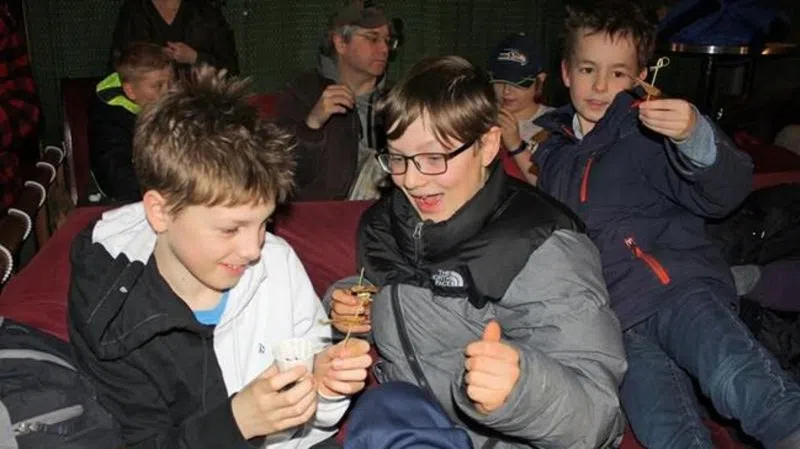
Bugs on snack menu for 1 night at Juneau movie theatre
JUNEAU, Alaska — Three boys sat rapt in their theatre seats beaming at a selection of snacks.
The reason for the excitement wasn’t butter popcorn or Red Vines. Orrin Noon, 10, Arlo Davis, 11 and Axel Boily, 10, had just received samples of seasoned chapulines — Mexican grasshoppers — and cooked, farm-raised locusts, and the boys were ready to nosh on the crunchy critters.
The reaction didn’t surprise David George Gordon, a public speaker, naturalist and author known as the Bug Chef, who delivered a lecture before a screening of “The Muppet Movie” at the Gold Town Theater and came with samples of edible insects.
“Kids are often more adventurous than adults,” Gordon said.


